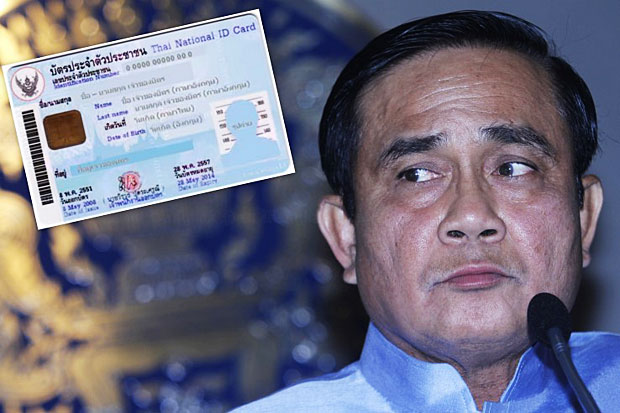
Interior Minister Anupong Paojinda nipped a new public uproar in the bud on Monday, insisting the government will not put personal information, including occupation and salary, on government-issued identification cards.
Social media exploded on Saturday after Prime Minister Prayut Chan-o-cha suggested that inclusion of wage and career data should be included on Thai ID cards by 2017 to help the government spend funds on low-income earners properly.
Today, however, Gen Anupong clarified that such information would only be included in an internal ministry database as part of the government's efforts to provide low-income earners better access to free or discounted government services, including public transport and utilities.
He insisted that use of the data would not violate people's rights and the extra information was being collected solely for the name of the public interest.
The interior minister said Gen Prayut first proposed early this year the idea of embedding personal details about salary level and occupation on the microchip included on all recent Thai ID cards. He reasoned it would help the government determine the exact number of poor people and target subsidised public services, such as free buses and trains, to specific areas.
It also would save the state money, help lower the tax burden on the poor, and improve the government's taxation system.
But human rights advocates opposed Gen Prayut's idea, calling it an invasion of privacy and violation of basic human rights. They argued people's salary and occupation were personal data and should not be displayed on ID cards, even to electronic readers.
The disclosure of such sensitive information could spur discrimination and put people at risk of exploitation by criminals.
Gen Anupong said minimal additional funds would be needed to collect salary and occupation data, as only surveys were required, not the production of new ID cards or reader systems.
Gen Prayut on Monday said minimum-wage earners would remain exempt from taxes, but their incomes would still need to be recorded to ensure they receive government benefits in the future.
"We have to think like this otherwise will not know who is who. We cannot just throw the whole chunk of money in (for public services). We need to distinguish (who needs them). But this is not class discrimination," Gen Prayut said.
"We want everyone to gain access to state services as much as possible."